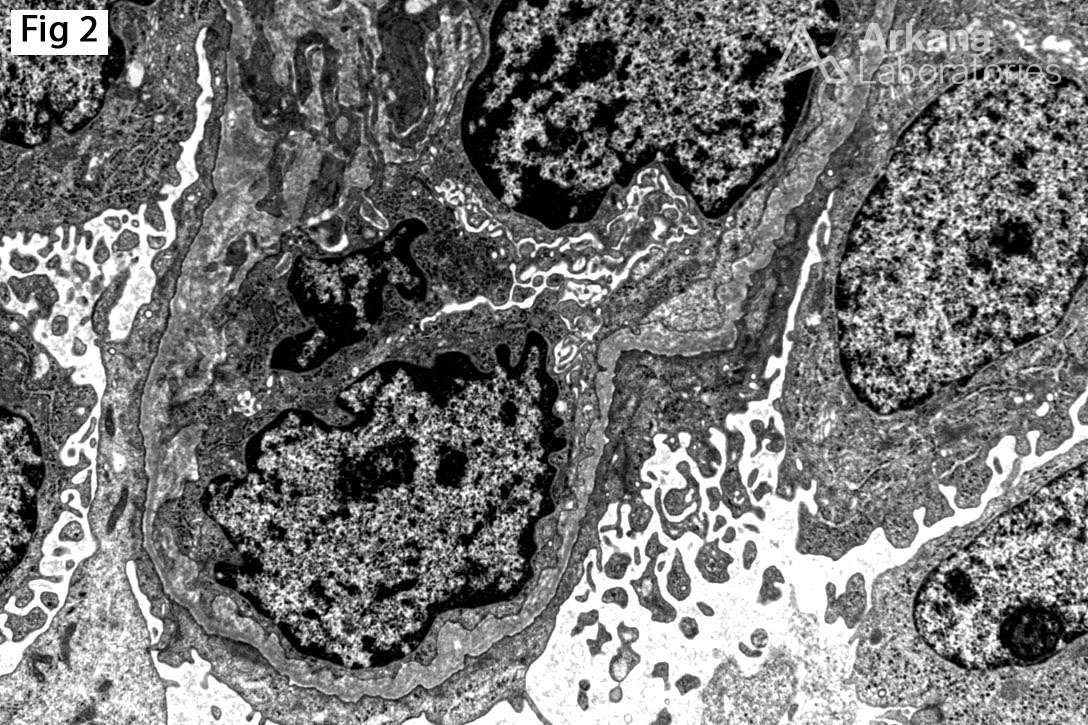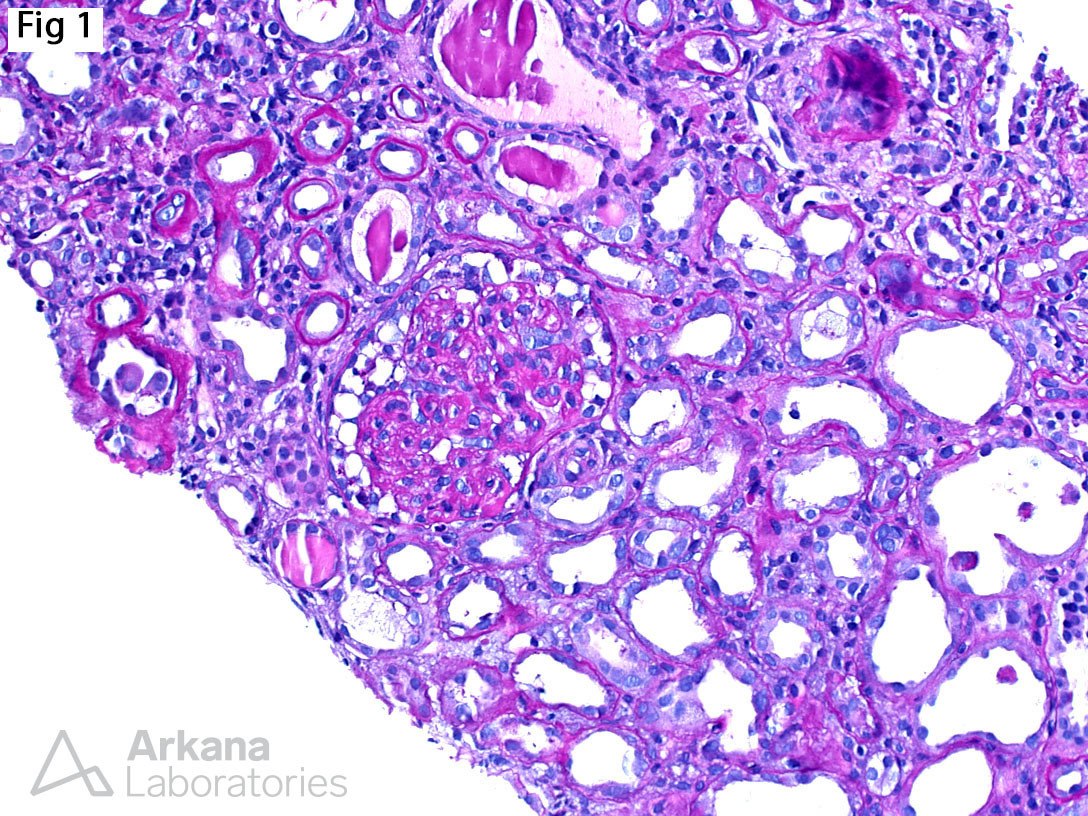This is a renal biopsy from a 6-year-old male with one-year history of steroid-resistant nephrotic syndrome. The urine protein/creatinine ratio is 4.2 g/g, the serum creatinine is 2.3 mg/dl and albumin is 1.2 g/dl. Figure 1 shows diffuse mesangial sclerosis with prominent mesangial consolidation, closure, and collapse of the capillary loops, and overlying podocyte proliferation. Immunofluorescence (not shown) is completely negative. Electron microscopy (Figure 2) shows diffuse epithelial foot process effacement, along with irregular glomerular basement membranes with variability in their thickness. The overall biopsy findings are consistent with diffuse mesangial sclerosis (DMS). DMS is a pattern of glomerular disease which can be sporadic, or associated with numerous syndromes with known genetic mutations such as Denys-Drash syndrome (WT-1 mutation), Frasier syndrome (WT-1 mutation), familial steroid-resistant nephrotic syndrome (PLCE1 mutation), Galloway-Mowat syndrome (WDR73 mutation), Pierson syndrome (LAMB2 mutation), type-1 carbohydrate-deficient glycoprotein syndrome (PMM2 mutation) and congenital nephrotic syndrome Finnish type (NPHS1 mutation). The most common of them is Denys-Drash syndrome and is characterized by steroid-resistant nephrotic syndrome, ambiguous genitalia, and Wilms tumor. It is transmitted in an autosomal dominant pattern and the majority of affected patients will develop a Wilms tumor by 18 months of age. Typically, Wilms tumors associated with the syndrome will present at a younger age and have a higher rate of bilateral involvement when compared to sporadic Wilms tumors. In addition, male patients with Denys-Drash syndrome are also at risk of developing gonadoblastoma within the streak gonads. Incomplete forms of the syndrome also exist, and the affected patients may present with the glomerular abnormalities without Wilms tumor or genitourinary abnormalities.

Quick note: This post is to be used for informational purposes only and does not constitute medical or health advice. Each person should consult their own doctor with respect to matters referenced. Arkana Laboratories assumes no liability for actions taken in reliance upon the information contained herein.



